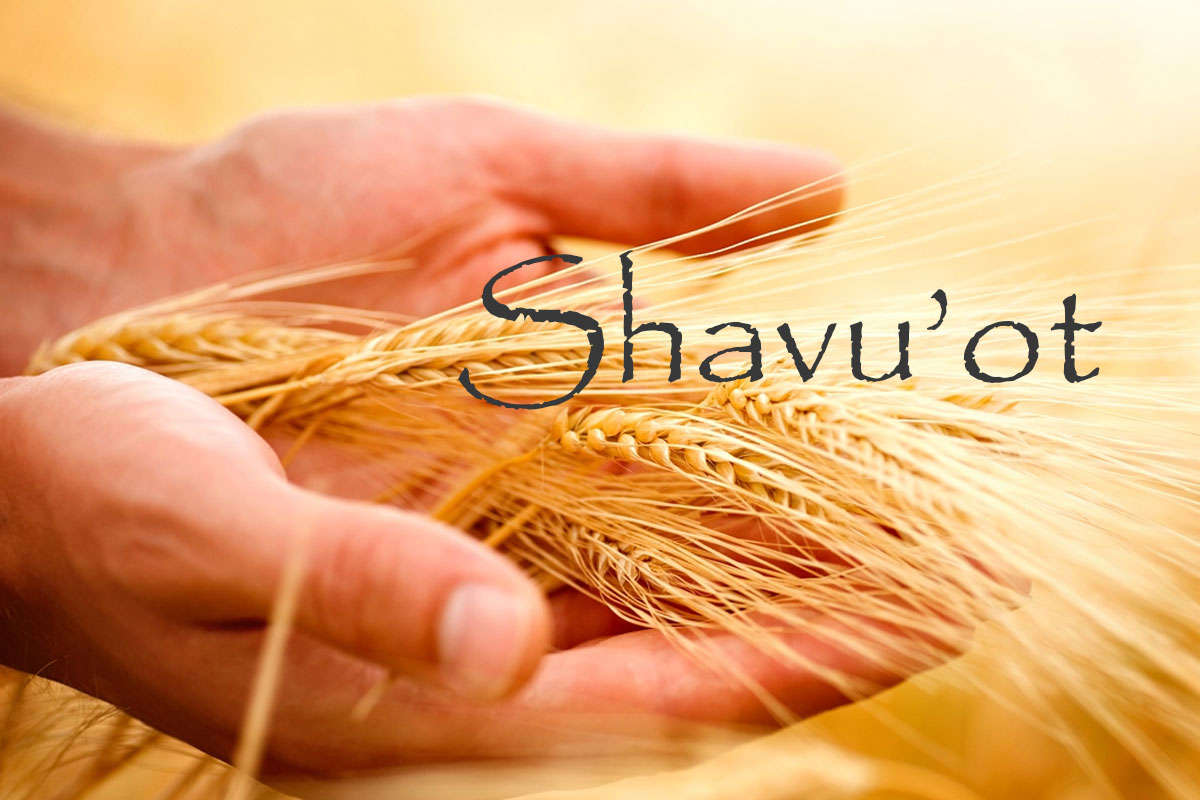The Greeks called it Pentecost, in English, one could call it the Feast of Ingathering but in Hebrew it is known as Shavu’ot – the promise of the Father. Another appointed season on God’s time clock, Shavu’ot is determined by counting seven Sabbaths from a particular day during the Pesach season.
However, there is controversy as to which day the counting should start.
Scripture says, You shall also count for yourselves from the day after the sabbath, from the day when you brought in the sheaf of the wave offering; there shall be seven complete sabbaths. You shall count fifty days to the day after the seventh sabbath; then you shall present a new grain offering to the Lord (Leviticus 23:16).
The ancient day Saducees took the position of starting the countdown from the first day of the week after the regular Sabbath after Pesach. The Pharisees started the countdown after the second day of the Passover Season—known as the Day of Unleavened Bread, a day deemed by God to be a high Sabbath. Since the Feast of Unleavened Bread was the 16th of Aviv, this special Sabbath could fall on any day of the week and not only a Friday.
This counting of days is known as “counting the omer.” An omer is a measurement that was equivalent to a days portion of grain.
In this instance, counting is an exercise of reaching a goal. The goal represented by the forty-nine omers of grain actually pertains to the counting of souls that we, as workers should help to bring into the Kingdom of God. Yeshua alluded to this in the book of John:
Don’t you say, ‘There are yet four months until the harvest?’ Behold, I tell you, lift up your eyes, and look at the fields, that they are white for harvest already (John 4:35 WEB).
God commanded that an offering be lifted up to Him on the 5oth day. That is an offering that represents one’s very life and breath.
Every fiftieth year was deemed the year of Jubilee—a time when all debts were to be forgiven. The symbolism behind the number fifty is deliverance or atonement.
Yeshua was the fulfillment of the Feast of First Fruits which means He was the First One that came out of the ground from the dead. He said, In most solemn truth I tell you that unless the grain of wheat falls into the ground and dies, it remains what it was—a single grain; but that if it dies, it yields a rich harvest (John 12:24 WNT).
He likens the souls of the Kingdom to those who will also experience life from the dead as they too will be resurrected when He comes back as Judge and King. This metaphorical description of seeds, harvest and grain is a practical lesson in learning the mathematical multiplications of “counting the omer.” If we all work to win souls we can collectively produce a great harvest. And God is faithful to forgive all debts as we bring more souls into His care.
The omer also has another meaning. It is the time of offering ourselves to God for a period of prayer and dedication for Him to work out His redemption in us. When we come to God we are usually broken in spirit and often clueless in our understanding. We work out our salvation by growing in God.
Yeshua, forty days after His resurrection, told His disciples to go to Jerusalem and wait for the Promise of the Father. Curiously, this ten-day wait landed on the Feast of Shavu’ot. As the disciples were gathered together in the upper room, praying and preparing their hearts (working out their salvation), Jews were pouring into the city in obedience to God’s command to come up to Jerusalem three times a year to offer sacrifice (Exodus 23:14-17).
This special feast day was a joyous time of celebration. Jews, speaking many different languages from many lands were passing by on their way to the Temple. As they passed this room of meeting, they all heard intense prayer and proclamations being lifted up to God.
As the Jewish pilgrims were commemorating the day that the Torah came down on Mt. Sinai, they were recalling the fantastic manifestations of God, reminding each other of how the mountain shook, the thunder roared and the lightening lit up the sky. They would tell this age long testimony to their children explaining to them how God gave them His Torah and wrote His Word on tablets of stone by His own finger. They would warn their children about God’s judgment, as it was at this same iconic event that Moses came down the mountain to find the children of Israel worshiping a golden calf. God punished them by the smiting of 3,ooo people.
This particular year, however, was different. They were all hearing proclamations and prayers being lifted up in their own languages. It was on this day that the Promise of the Father flowed down from Heaven and the power was being manifested as the saints prophesied supernaturally. On the celebratory day that the Word was written on stone, God made the blueprint a reality by writing His Word on the tablets of hearts and with this miracle 3,000 men and their families were saved and baptized.
What redemption—what grace—what a promise fulfilled!

